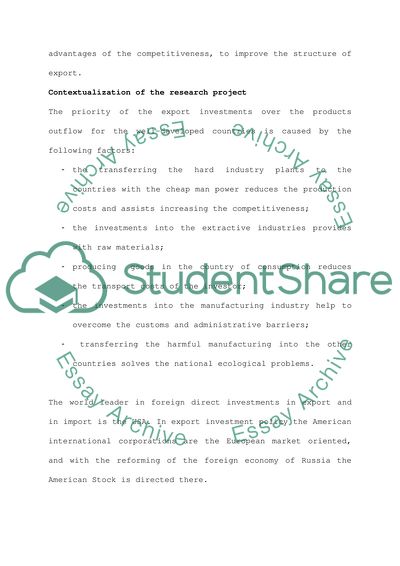Cite this document
(Foreign Direct Investments into Russia Term Paper, n.d.)
Foreign Direct Investments into Russia Term Paper. Retrieved from https://studentshare.org/marketing/1703920-foreign-direkt-investments-into-russia
Foreign Direct Investments into Russia Term Paper. Retrieved from https://studentshare.org/marketing/1703920-foreign-direkt-investments-into-russia
(Foreign Direct Investments into Russia Term Paper)
Foreign Direct Investments into Russia Term Paper. https://studentshare.org/marketing/1703920-foreign-direkt-investments-into-russia.
Foreign Direct Investments into Russia Term Paper. https://studentshare.org/marketing/1703920-foreign-direkt-investments-into-russia.
“Foreign Direct Investments into Russia Term Paper”, n.d. https://studentshare.org/marketing/1703920-foreign-direkt-investments-into-russia.


